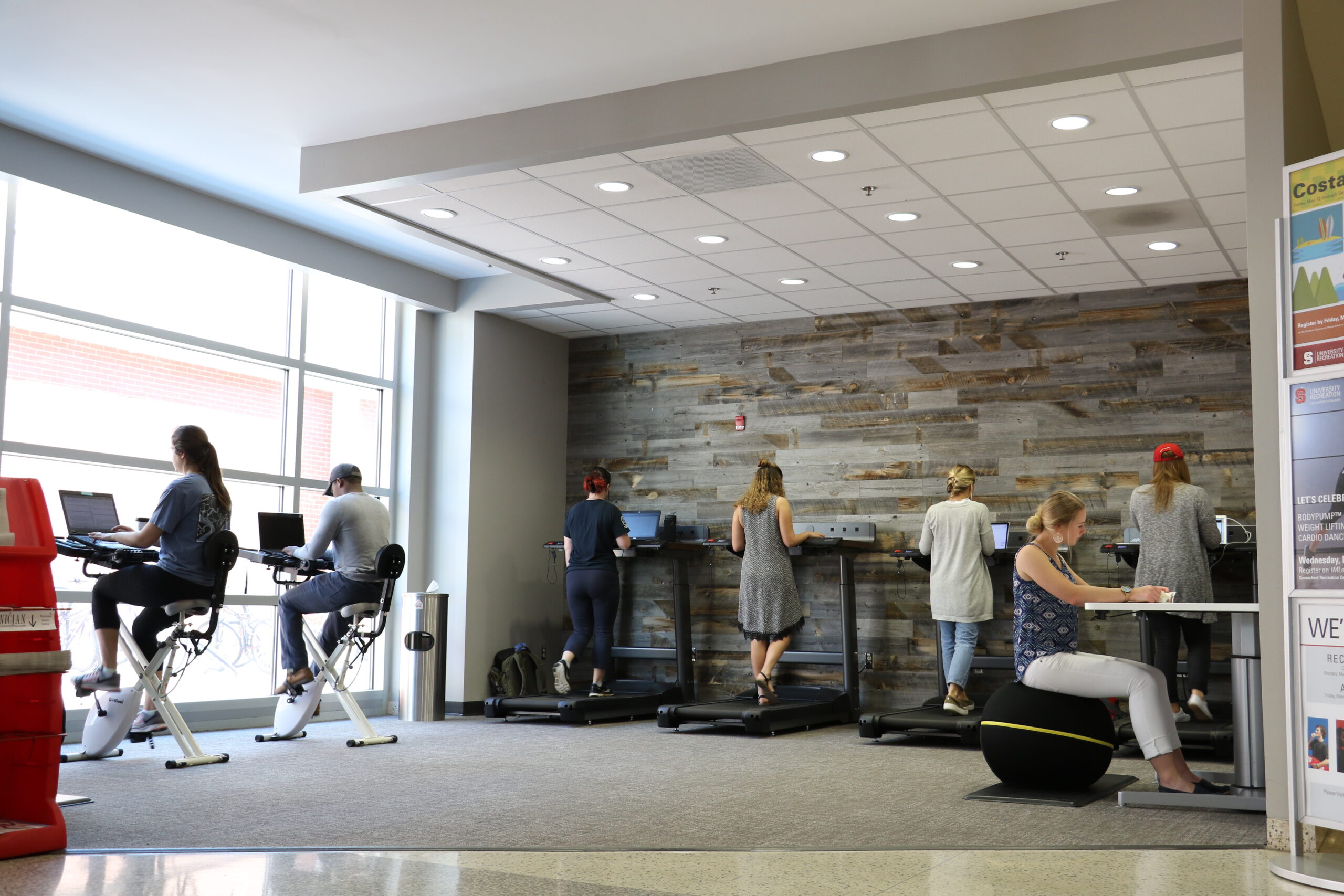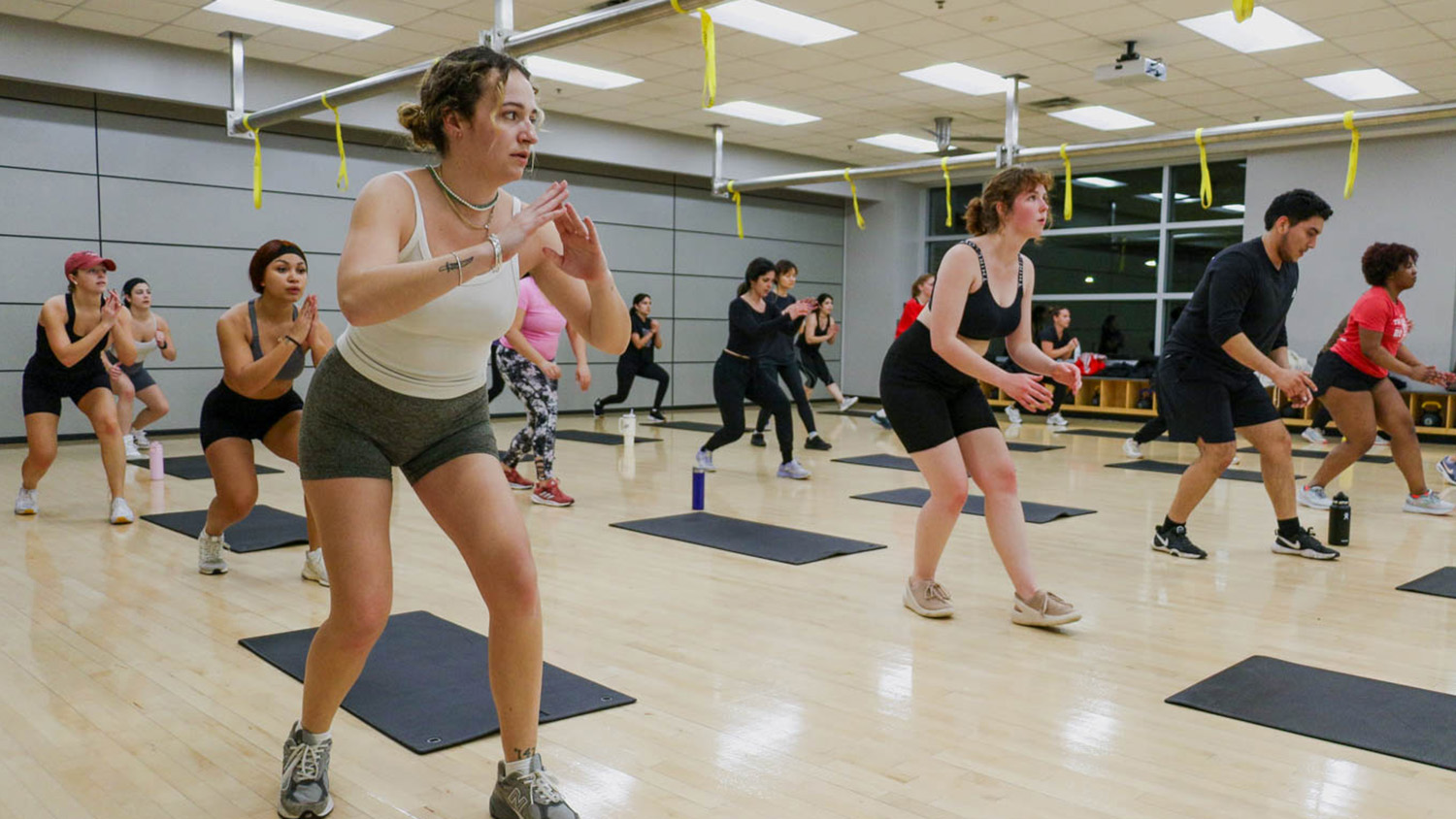As midterms approach, students are gearing up for one of the most intense periods of the semester. With your books broken open, pencils sharpened and highlighters ready, your anxiety may be heightened, but no need to fear! By developing these five healthy habits, you can elevate your study sessions and excel in your upcoming exams.
Clear Distractions
If distracted while studying, you run the risk of not retaining information or losing focus. Distractions are bound to appear no matter where you choose to study, and while many are uncontrollable (loud neighbors, crowded buildings), there are things you can make adjustments to. Set your electronics to “Do Not Disturb” or install a focus app, like Pomodor, specially designed for study sessions. Perhaps you study better with a little background noise – consider listening to a relaxing playlist, like this one curated by Wellness and Recreation. Find your perfect study spot on campus, whether that’s a cubicle in D.H. Hill Library, the active study space at Wellness and Recreation, or Port City Java’s lobby. Check out these tips for optimizing your environment and staying organized.
Avoid Cramming
Studies show that “cramming,” or studying under the pressure of limited time, is not the ideal method for long-term learning. Not only will stress interfere with your focus, but the potential loss of sleep can leave you feeling groggy following your exam. It’s better to strategically lay out a study schedule, which leads into our next tip.
Stick to a Plan
Create and stick to a weekly study schedule. Research has shown that students who study sporadically and whimsically do not perform as well as students with a set routine. Even if you’re swamped with coursework, setting aside a few hours each week for specific subjects is beneficial for your long-term memory. Try your best to study in the same place at the same time, as environmental familiarity helps to boost your focus. Consider registering for a study planning session with a wellness coach to establish a study routine and habits that align with your lifestyle.
Take Breaks
Be sure to make time for rest. Take small breaks to stretch your legs, quickly check your phone or get a snack. The National Institute of Health shares that taking short breaks strengthens our memories and improves retention by allowing our brains to refresh and consolidate the information. Take a break by registering for the next Howl and Chill: Grillin’ and Chillin’ to de-stress and connect with others at this free cookout with delicious foods, lawn games and music.
Set SMART Goals
Establish “mile markers” or goals for yourself and create a clear layout of your objectives using the SMART Method:
- Specific: Pinpoint the subject or material you particularly want to improve on. Perhaps you understand chapter one materials well, so focus your energy on a different chapter instead.
- Measurable: Set a certain number of hours each week to contribute to the goal, or quantify how much you hope to improve in the class. For example, “I will improve by one letter grade on my next essay.”
- Achievable: Understand your resources, skills and abilities. Do not commit to studying for too many hours in a day if you also have a part-time job or a heavy class schedule. It’s important to be realistic to avoid missing goals and feeling discouraged.
- Relevant: Ensure that the goal matches your overall objective. If a single assignment is worth a smaller part of your grade, perhaps you do not need to dedicate as much time to it as preparing for a project worth 50 percent of your total course grade.
- Time-bound: Set a deadline for when this goal should be completed by. Aim to improve your understanding of a subject before the next exam, rather than right before the final.
For more information on academic support, the Academic Success Center and the Undergraduate Writing Center, located on the second floor of D.H. Hill Jr. Library, are great resources. These peer-to-peer programs use trained students to help you navigate tutoring and take your skills to the next level. Subject areas supported include biology, physics, accounting, statistics and more.
- Categories:



